 | Cambridge English Teacher Training Certificate in Teaching English to Speakers of Other Languages |
  The essential TEFL qualification that's trusted around the world ... The CELTA course gives you the essential skills and knowledge you need to teach English to adults and older teenagers. It is one of the most widely taken qualifications of its kind and is trusted by employers, language schools and governments around the world.
| ||||||||||||||||||||||||||
The Course
 The CELTA course is designed to help you develop effective and principled teaching practice. As well as receiving input from your tutors about key topic areas related to teaching English, you will also have substantial hands-on teaching practice to turn theory into practice. The CELTA course is designed to help you develop effective and principled teaching practice. As well as receiving input from your tutors about key topic areas related to teaching English, you will also have substantial hands-on teaching practice to turn theory into practice.
|
 | ||
| CELTA Catalunya - part of Exams Catalunya Cambridge English Platinum Teaching Awards and Examination Centre ES439 | ||
What is the course like?
|
 | ||
| CELTA Catalunya - part of Exams Catalunya Cambridge English Platinum Teaching Awards and Examination Centre ES439 | ||
Course location
|
Dates & Fees
CELTA course dates
| ||||||||||||||||||||||||||||
CELTA Entry Requirements
| |||||||||||||||||||||
Application Procedure

| ||||||||||||||||||||||||
Careers Advice & Professional Development
  The CELTA course is an initial Teacher training qualification and once you have completed the course you will be ready to begin your new role as an English Language teacher. You will have the first 6 hours of teaching practice under your belt and you will have developed the skills necessary to feel confident in the classroom. The CELTA course will represent your first steps on a path of continuous learning as you progress through your career as an English teacher. The CELTA course is an initial Teacher training qualification and once you have completed the course you will be ready to begin your new role as an English Language teacher. You will have the first 6 hours of teaching practice under your belt and you will have developed the skills necessary to feel confident in the classroom. The CELTA course will represent your first steps on a path of continuous learning as you progress through your career as an English teacher.
We know that as a new teacher you will still have a lot to learn and for this reason, as a CELTA Catalunya graduate, you can count on a full year of ongoing support and further training.
| ||||||||||||||||||||
Books to Buy for CELTA
 Methodology
Grammar Reference
The CELTA course
| ||||||||||||||||||||||||||||||||||||||
Accommodation
  Our accommodation service will organise your accommodation for you. This will be in a rented room of a shared flat in Barcelona. Our accommodation service will organise your accommodation for you. This will be in a rented room of a shared flat in Barcelona.Staying in a shared flat is the most budget friendly way to have a comfortable roof over your head during your stay with us. You'll have your own bedroom in an apartment with up to 4 other occupants who may be students or local families, with or without children.
| ||||||||||||||||||||||||||||
Past trainees
| |||||||||||||||||||
About Barcelona
| ||||||||||||||||||



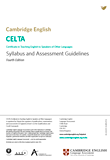



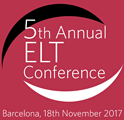
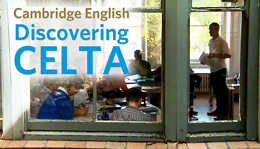

 CELTA course topics
CELTA course topics There are 120 contact hours with the tutors during the four weeks.
There are 120 contact hours with the tutors during the four weeks.
 The CELTA course takes place in a centrally located school in the heart of the beautiful Eixample district of Barcelona. The building boasts traditional period features such as high ceilings and mosaic tiled floors which are typical of the city of Barcelona. Trainees can count on all the facilities necessary for studying and lesson planning during the course, including high speed internet access, WiFi and a photocopier.
The CELTA course takes place in a centrally located school in the heart of the beautiful Eixample district of Barcelona. The building boasts traditional period features such as high ceilings and mosaic tiled floors which are typical of the city of Barcelona. Trainees can count on all the facilities necessary for studying and lesson planning during the course, including high speed internet access, WiFi and a photocopier. 















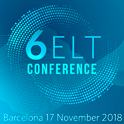


 Complete the both the application form and pre interview task* and send them to
Complete the both the application form and pre interview task* and send them to  If it does meet the required standard, we aim to interview you within the next week. The interview will be face-to-face if you live in the Barcelona area or by telephone or Skype if you live elsewhere. This stage is essential to assess your language awareness skills and teaching ideas. We will inform you of the outcome of the interview in writing within 24 hours (36 hours over the weekend).
If it does meet the required standard, we aim to interview you within the next week. The interview will be face-to-face if you live in the Barcelona area or by telephone or Skype if you live elsewhere. This stage is essential to assess your language awareness skills and teaching ideas. We will inform you of the outcome of the interview in writing within 24 hours (36 hours over the weekend).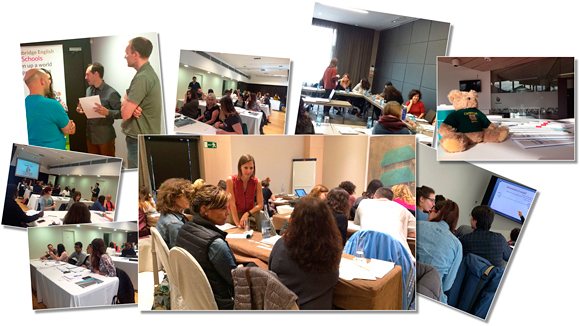


 There are literally thousands of language schools in Spain and even the
smallest town usually has at least one.
Most schools wait for their teachers to find them - they don't need to
advertise.
This means that finding work is often a matter of being in the right
place at the right time.
Other schools, especially the larger ones, have more formal recruitment
procedures. Some may ask you do to a demonstration lesson.
There are literally thousands of language schools in Spain and even the
smallest town usually has at least one.
Most schools wait for their teachers to find them - they don't need to
advertise.
This means that finding work is often a matter of being in the right
place at the right time.
Other schools, especially the larger ones, have more formal recruitment
procedures. Some may ask you do to a demonstration lesson. 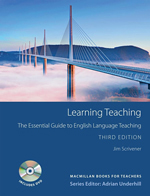
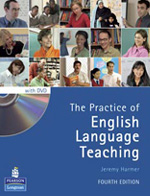

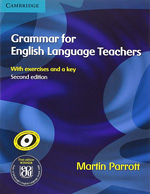
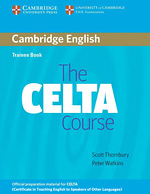

 The city of Barcelona is the second largest city in Spain, and the
capital of Catalonia, with a population of 1.7 million inhabitants and 4
million in the metropolitan area. Its cultural richness, vibrant life,
and splendid location have made it one of the most visited cities in the
world, with over 4 million visitors per year. There are two official
languages spoken in Barcelona: Catalan, generally spoken in all of
Catalonia, and Castillian Spanish.
The city of Barcelona is the second largest city in Spain, and the
capital of Catalonia, with a population of 1.7 million inhabitants and 4
million in the metropolitan area. Its cultural richness, vibrant life,
and splendid location have made it one of the most visited cities in the
world, with over 4 million visitors per year. There are two official
languages spoken in Barcelona: Catalan, generally spoken in all of
Catalonia, and Castillian Spanish. 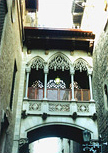 Barcelona is unequivocally a Mediterranean city, not only because of its
geographic location but also and above all because of its history,
tradition and cultural influences. The old city (Ciutat Vella) offers
the visitor a wide range of routes to follow and reconstruct the history
of Barcelona by starting at the Roman walls, moving to the medieval
streets of the Gothic Quarter and the Ribera. The grid-like city
expansion (Eixample), formed at the end of the 19th century, bears
witness to the wealth brought about by the economic growth of the
period. There's nothing quite like a walk down Paseo de Gracia or the
Ramblas - this stretch must be one of the most unique in the world.
Barcelona is unequivocally a Mediterranean city, not only because of its
geographic location but also and above all because of its history,
tradition and cultural influences. The old city (Ciutat Vella) offers
the visitor a wide range of routes to follow and reconstruct the history
of Barcelona by starting at the Roman walls, moving to the medieval
streets of the Gothic Quarter and the Ribera. The grid-like city
expansion (Eixample), formed at the end of the 19th century, bears
witness to the wealth brought about by the economic growth of the
period. There's nothing quite like a walk down Paseo de Gracia or the
Ramblas - this stretch must be one of the most unique in the world.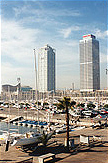 The city's magnificent climate means that its streets, squares and parks
are full of people enjoying the outdoor atmosphere and hospitality that
the city is so famous for.
The city's magnificent climate means that its streets, squares and parks
are full of people enjoying the outdoor atmosphere and hospitality that
the city is so famous for. Travelling around Barcelona is cheap and easy. The Lewis School CELTA venue is in the heart of the city and so is on most major bus and metro routes.
If you like cycling, Barcelona has an excellent network of safe bicycle lanes.
This is an excellent way to get about and enjoy our sunny Mediterranean climate.
Travelling around Barcelona is cheap and easy. The Lewis School CELTA venue is in the heart of the city and so is on most major bus and metro routes.
If you like cycling, Barcelona has an excellent network of safe bicycle lanes.
This is an excellent way to get about and enjoy our sunny Mediterranean climate.  Barcelona is a generally safe city, visited every year by millions of tourists. However, pick pocketing and bag snatching are one of the most common problems that visitors encounter while in the city. Pick pocketing and bag snatching is most common on La Rambla area, at rail stations, on the beaches, and in the metro (subway).
Barcelona is a generally safe city, visited every year by millions of tourists. However, pick pocketing and bag snatching are one of the most common problems that visitors encounter while in the city. Pick pocketing and bag snatching is most common on La Rambla area, at rail stations, on the beaches, and in the metro (subway).